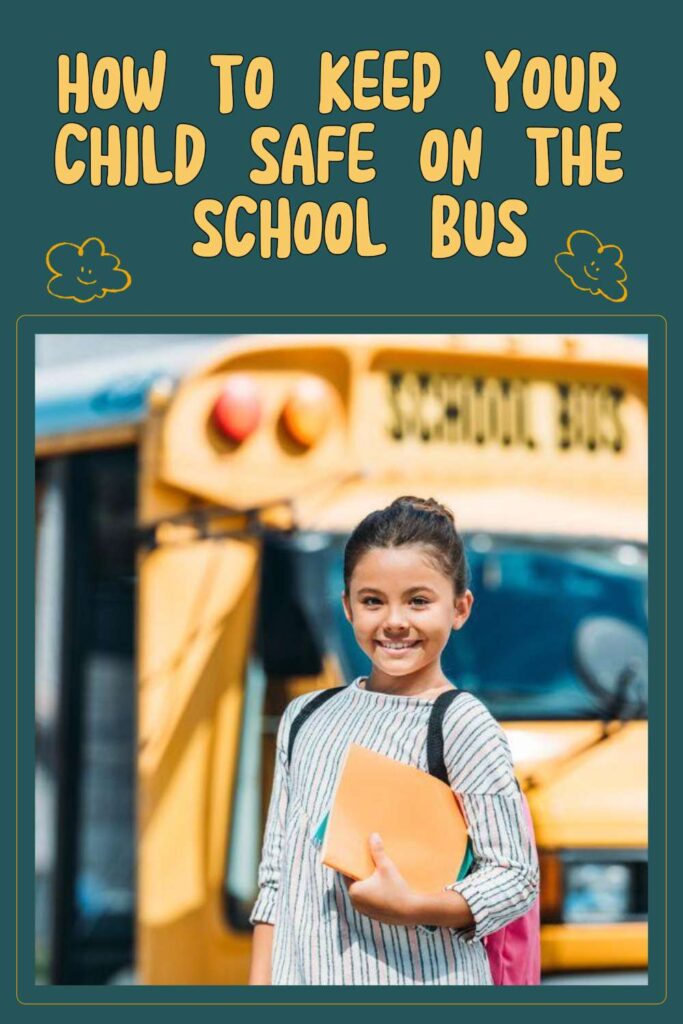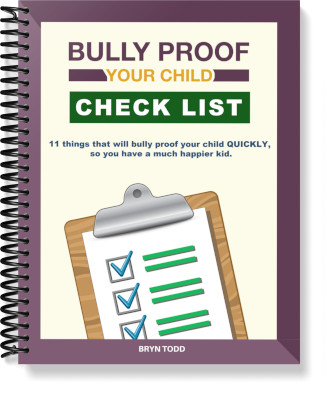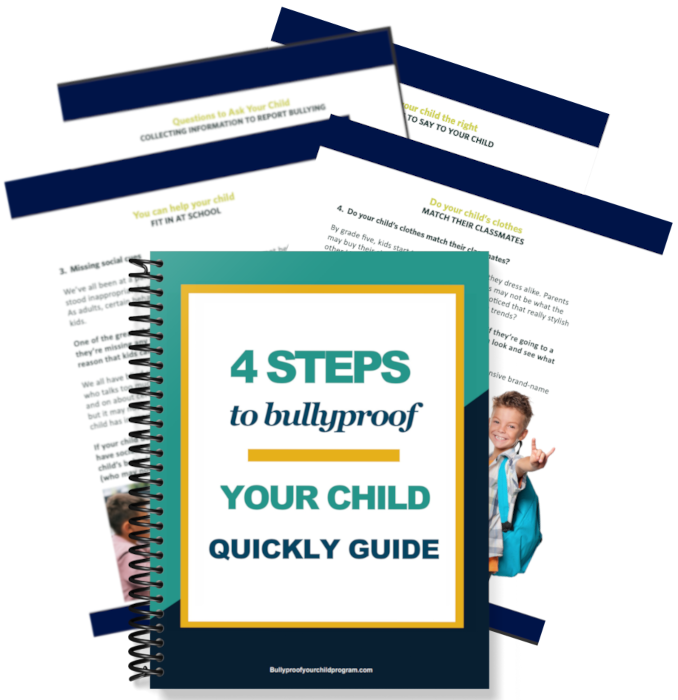
The school bus can be a challenging place for kids. Mean behavior from peers is not uncommon, and it can leave your child feeling unsafe on their daily commute. Most parents have seen online videos of children picked on by cruel kids, and it can be terrifying and heartbreaking to watch.
If you want to protect your child, it is important to teach your child how to react if something happens to them. When you have briefed your child in advance, it is going to be much easier to handle the situation in real time.
Understanding Bullying on the School Bus
Bullying can occur in many places, and school buses are a common setting for it, often due to limited supervision. The driver is primarily focused on driving the bus and spends about 90% of their time with their back turned to his passengers.
● Changes in Behavior. If your child starts to have anxiety or becomes withdrawn after the bus ride it could be a sign.
● Avoiding the Bus: When your child starts to refuse to take the school bus or insists that you drive them it is a clue that something may be going on.
Open communication is important to get to the bottom of what is happening. Encourage your child to share their experiences and feelings about riding the bus.
Ways to Keep Your Child Safe on the Bus
Talk to the bus driver and let them know about any concerns. Encourage your child to sit near their friends which will help them feel more secure.
Start by learning your school’s bullying policies. Understanding these rules helps you advocate for your child.
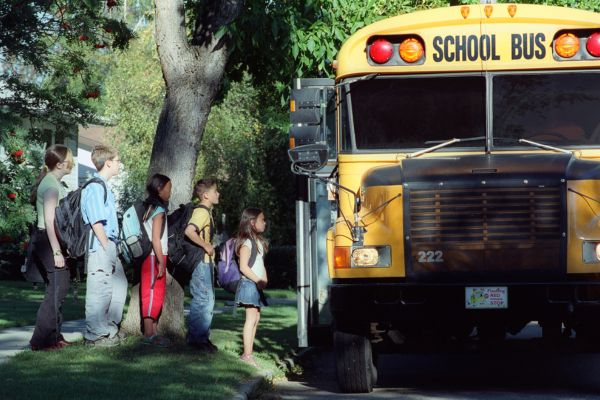
Tips for keeping your child safe:
Make sure your child knows where their bus stop is and how to get there safely. Teach them to:
● Your child can sit near the front of the bus near the bus driver. If anything happens on the ride, the bus driver will have a better chance of being aware of it.
● If your child is being bullied on the bus, they can record a conversation or situation on their phone or watch, depending on the laws where you live. You can use the recording to report the incident to the school.
● Stand at least three giant steps away from the curb while waiting for the bus. This distance helps protect them from any unexpected dangers near the road.
● Teach your child to wait in safe spots for the bus pick up.
● Encourage your child to tell you if there has been any bullying towards any of the kids, and ask if they have experienced it themselves.
Instilling confidence in your child will help them navigate challenging situations.
Teaching Conflict Resolution
Teach your child how to handle disagreements peacefully and how to respond if they are being teased or a child is trying to trigger them to react. Bullies are looking for a reaction, and if your child doesn’t get upset or give the response they are looking for, the bully may move on to another target.
Kids who know how to banter and joke back and forth are a lot less likely to get picked on. If you want to teach your child these skills check out our bundle Verbal Self Defense for Kids Made Easy.
You can role play scenarios for potential conflict that may happen. This will give your child a huge advantage when dealing with mean spirited kids.
Working with the School
Understanding School Policies
Every school will have a policy on bullying and student behavior on the school bus. There will be very clear guidelines that outline how they address incidents of bullying.
If your child is being bullied on the bus, take all of the information and report it to the school. Some people say ask your child to report what happened to the teacher themselves, but I disagree. In this day and age, you need to be an advocate for your child and make sure you have all of the information before you report it to the school.
Some bullies can be extremely manipulative and lie, so you want to make sure that you have all the facts and can state clearly what happened.
There was a boy who was bullying our son at the school and encouraged all the boys to “hunt” our son down on the playground. When I reported it to the teacher and she talked to him he said the kids were only playing tag. He tried to play the teacher like a violin.
If I wasn’t such a strong advocate for my son about what had been going on, the teacher may have fallen for this manipulative student’s story.
Communication with Bus Staff
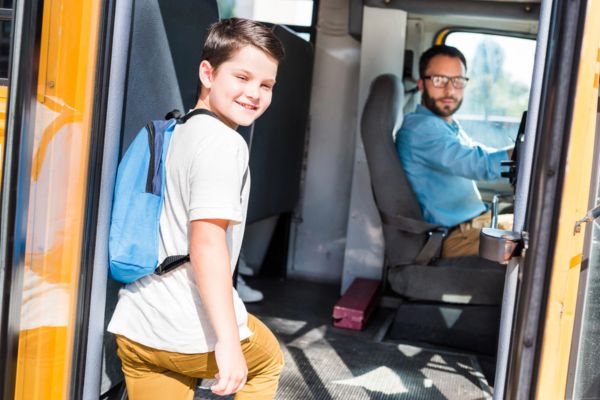
It’s important to establish a good line of communication with the bus driver and attendants. Introduce yourself and your child, and share any concerns you may have about bullying or rough behavior.
You can ask the bus driver to keep an eye on your child. Make sure they know what to watch for, like kids being pushed or teased.
Consider following up with a note or an email. This ensures that your concerns are documented and taken seriously. A positive relationship with the bus staff can help your child feel safer.
Empowering Your Child
Role-playing is a great way for your child to practice responding to mean spirited kids. Start by discussing different scenarios they might encounter on the bus. Ask your child how they would feel and react in each situation.
Example Scenarios:
● A classmate starts teasing them in front of all of the kids on the bus.
● Another student takes their seat.
After discussing how to handle the situation, act out the scenarios together. Encourage your child to respond assertively.
This will include standing tall, making eye contact, and calmly saying something like, “I don’t like that.” You will need to rehearse these responses helps your child feel prepared and confident.
Building a Support System
Creating a support system is key for your child’s well-being. Talk to your child about trusted adults they can talk to, like a teacher, school counselor, or bus driver. Make a list of these people and encourage your child to reach out when they feel uncomfortable.
Tips for Building Support:
Take the time to introduce yourself to the bus driver and get to know them. Ask about their experience and how they manage different situations on the road. Share any worries you have about your child’s safety and ask for their advice on how to best address them.
● Encourage open communication at home.
● Reinforce the importance of sharing their feelings.
You can also help your child connect with friends on the bus. Having friends nearby can make them feel safer and less isolated. Let your child know it’s okay to seek help from their peers, too. A strong support system can make all the difference.
Frequently Asked Questions
It’s common to have questions about how to support your child when they face mean behavior from others on the school bus. Here are some specific concerns and helpful strategies.

Here are some ways you can work with the school to keep your child safe:
What to do when another kid is mean to your child?
If another child is mean to your child, encourage them to speak up immediately. If it continues to happen it can be reported to a teacher.
What can you say to your child to comfort them when friends are mean?
IAt some point in time your child is going to have a friend who has unkind behavior. Talk about the situation and what happened and how they could have handled the situation in the best way possible, and what to do going forward.
This situation presents a valuable opportunity for your child to grow and develop essential skills for navigating difficult relationships.
It is important that your child knows that they are not to blame when another child is being mean. Sometimes another child may have trouble controlling their emotions or may not like a game,losing or your child’s behavor.
Share that you love your child and are there to support them.
How can you help your child deal with teasing?
Your child will be teased and the best way to handle the situation is with a funny comeback. Humor diffuses the situation and clever replies often throw the bully off kilter. Think about it, who would you pick on the kid who doesn’t respond or the one who uses a funny comeback and makes everyone laugh.
Verbal self defense is a skill that can easily be learned, and the sooner your child has the skill the easier life will be when they encounter teasing.
What steps can be taken to address bullying on the school bus?
Start with talking to your child’s bus driver about any bullying incidents. You will also need to report the incident to your child’s school.
How should you talk to your child about handling situations when someone makes fun of them?
There are two parts to teasing, how to respond and your child’s body language. You are going to want to work with your child on learning how to stay calm and not give the bully the response that they are looking for.
The more your child reacts and gets upset, the more the bully will continue.
